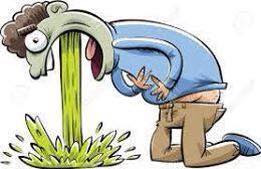The German Election: Something Old, Nothing New.
The victory of the Christian Union in Germany yesterday was hardly a surprise.
It had been expected for months, ever since Socialist Chancellor Olaf Scholz fired his finance minister, Christian Lindner of the Free Democratic Party, which effectively dissolved the Coalition consisting of the Socialists, the Greens and the FDP.
That coalition had always been on shaky ground from its inception.
It took Scholz two months to piece it together in 2021, and this so-called Ample Coalition lost steam from its very beginning.
No single party in Germany can win an absolute majority, so the leader of the party with the largest number of votes becomes chancellor and has to piece together a working government by inviting other parties to work with him.
That means concessions have to be made with other parties, whose agendas might be radically different from the winning party, usually in the form of ministerial posts.
And that means that the various ministers usually work against the common good in order to promote their parties' political platforms.
That is what brought down Scholz's government.
Unfortunately, Scholz and the Greens thought that they were very popular, ignoring the political polls that indicated they were extremely unpopular and hence their overwhelming defeat in the elections yesterday.
The German Socialists suffered their most overwhelming defeat in the history of the German Federal Republic, while the Greens fared hardly better.
Scholz at last saw the light and admitted that HE was the primary reason for the defeat of the Socialist Party at the polls, while Robert Habeck, leader of the Green Party, announced that he was withdrawing from politics altogether.
No great loss, really.
Their actions have resulted in the stagnation of the once-robust Germany economy.
Scholz will remain acting chancellor until the new government is formed.
However, Scholz believes that the new government might keep him on as its chancellor.
Clearly, the man is delusional.
Even worse was their actions resulted in the rise of the neo-Nazi Alternative for Germany Party (AFD), which came in second place as the highest vote getter in yesterday's election.
However, the AFD will have no place in the upcoming ruling coalition because all of the other parties have repeatedly stated that they will refuse to form a government with them under any circumstances.
This "firewall" is interesting, in that the AFD will have the second largest number of seats in the German government.
The other big winner in this election was Die Linke (The Left).
Driven almost to extinction in the last few years, Die Linke rose like a phoenix from the ashes to surpass the 5% threshold necessary to have representation in the German government and be a potential coalition partner.
But the CDU/CSU has no intention of working with the Left, any more than it does to work with the extremist Right.
The biggest losers in yesterday's election were Christian Lindner's FDP and Sahra Wagenknecht's BSW (Bundnis Sahra Wagenknecht). They failed to make the 5% threshold. The FDP has been a long-established party that has been losing steam for years and its demise had been foretold even before this election. Lindner stated that he would be retiring from public view after this sad but expected defeat.
As for Wagenknecht, she was originally a member of Die Linke but withdrew from that party to form her own, named after herself. It has been a remarkable flash in the pan over the last two years, trying to combine Right and Left philosophies and was quite successful in the East German states.
But on the national scale, it was not nearly so successful, and BSW will have no part in the upcoming German government.
So where does that leave Germany...and Merz?
We, there are now effectively five parties in government, and Merz will not work with two of them, the AFD and Die Linke.
That leaves the socialists and the Greens.
The Greens are not a viable coalition partner for the conservative Christian Union.
That leaves the Socialists, with whom the CDU has entered coalition governments before.
Angela Merkel referred to those governments as "Grand Coalitions."
Most of her tenure as German chancellor was based on them.
Such was the case until the 2021 election, when Angela stepped down as party leader and the Socialists won.
Which opened the door to the nightmare that Germany's current position.
As for Merz, it is to be seen whether or not he can deliver on his promises to "restore" Germany to its place in Europe and the world, especially since his partner will be a party that he himself has criticized as being largely responsible for the nation's woes.
And will he be able to stand up against US President Trump?
All of that is in the future. But the future comes fast these days.
All we know for sure is that a CDU/Socialist coalition will be the result of this election.
Just like Germany has had numerous times before.
Everything old is new again.




Comments
Post a Comment